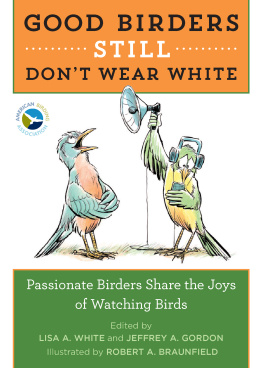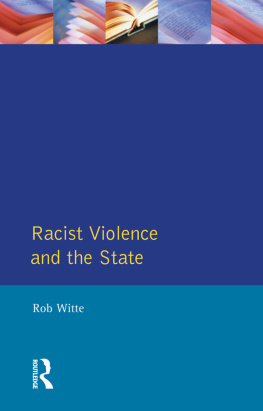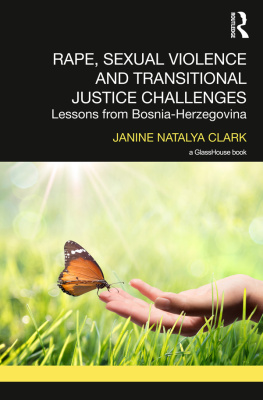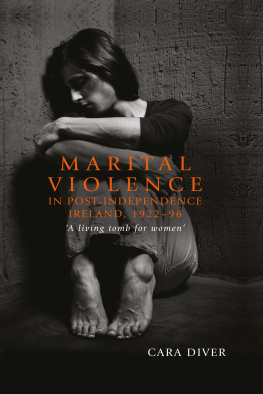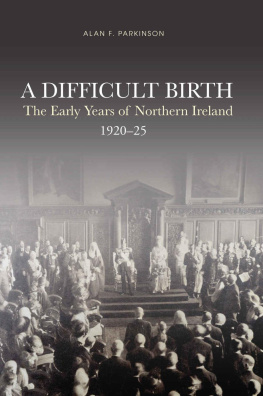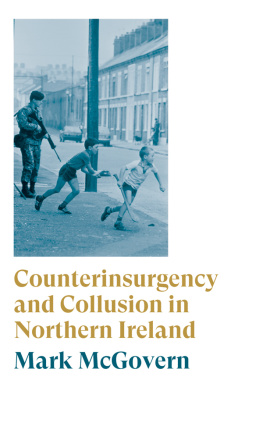
What does torture and brutality feel like to those at the receiving end? What are the factors which lead victims to narrate their experience afterwards or to keep silent? In what ways does masculinity restrict or fashion the ways in which narration occurs? What is the link between storytelling and propaganda? Lisa Whites findings from her interviews with republican male prisoners in Northern Ireland provide us with fascinating, complex and informative answers to those questions. This book will be of great value to anyone interested in how people seek to come to terms with the legacy of political violence and conflict.
Bill Rolston, Emeritus Professor, University of Ulster, UK
Through a tenacious reading of the stories of men detainees during the Northern Ireland Troubles, the author upsets conventional preoccupations with truth claiming (with all that this implies for exclusion and privileging hierarchies of victimhood). By contrast, this book shows how and why truth-sharing should be the basis for communicative action and political healing. This book is essential reading for all students of conflict studies, transitional justice and victimisation.
Mary Corcoran, Senior Lecturer in Criminology, Keele University, UK
Transitional Justice and Legacies of State Violence
As politicians, public bodies and non-Governmental organisations continue to profess an interest in making peace with the past, this highly original study explores the motivation, significance and legacy of making public experiences of state violence in Northern Ireland.
Based on a synthesis of documentary material with the findings from a series of contemporary interviews, this timely book uncovers the reasoning behind many Republican former detainees accounts of state violence and torture. It examines the aims of those who went public during the conflict and discusses the meaning they attached to their stories and the various responses to them. It also identifies some of the risks involved in criticising the violence of the British State and illuminates the ways in which truths are often contested in Northern Ireland both during the conflict and in the years which have followed. A unique piece of interdisciplinary work, the study disentangles and evaluates the discourses presented by former detainees and makes an innovative and interesting contribution to knowledge about transitional justice and legacies of state violence.
The book is suitable for social science scholars interested in human rights, state violence, criminology and transitional justice, as well as those seeking to understand more about experiences of imprisonment and the legacy of the Northern Ireland conflict.
Lisa White is a Senior Lecturer in Criminology at the University of Lincoln. Her interests include state violence, imprisonment and human rights.
Routledge studies in crime and society
1 Sex Work
Labour, mobility and sexual services
Edited by JaneMaree Maher, Sharon Pickering and Alison Gerard
2 State Crime and Resistance
Edited by Elizabeth Stanley and Jude McCulloch
3 Collective Morality and Crime in the Americas
Christopher Birkbeck
4 Talking Criminal Justice
Language and the just society
Michael J. Coyle
5 Women Exiting Prison
Critical essays on gender, post-release support and survival
Bree Carlton and Marie Segrave
6 Collective Violence, Democracy and Protest Policing
David R. Mansley
7 Prostitution in the Community
Attitudes, action and resistance
Sarah Kingston
8. Surveillance, Capital and Resistance
Michael McCahill and Rachel L. Finn
9 Crime, Community and Morality
Simon Green
10 Flexible Workers
Labour, regulation and the political economy of the stripping industry
Teela Sanders and Kate Hardy
11 Histories of State Surveillance in Europe and Beyond
Edited by Kees Boersma, Rosamunde van Brakel, Chiara Fonio and Pieter Wagenaar
12 Rape, Victims and Investigations
Experiences and perceptions of law enforcement officers responding to reported rapes
Shana L. Maier
13 Understanding Gender Based Violence
National and international contexts
Edited by Nadia Aghtaie and Geetanjali Gangoli
14 Queer Sex Work
Edited by Mary Laing, Katy Pilcher and Nicola Smith
15 Criminology and War
Transgressing the borders
Edited by Sandra Walklate and Ross McGarry
16 Transitional Justice and Legacies of State Violence
Talking about torture in Northern Ireland
Lisa White
Transitional Justice and Legacies of State Violence
Talking about torture in Northern Ireland
Lisa White
First published 2015
by Routledge
2 Park Square, Milton Park, Abingdon, Oxon, OX14 4RN
Simultaneously published in the USA and Canada
by Routledge
711 Third Avenue, New York, NY 10017
Routledge is an imprint of the Taylor & Francis Group, an informa business
2015 Lisa White
The right of Lisa White to be identified as author of this work has been asserted by her in accordance with sections 77 and 78 of the Copyright, Designs and Patents Act 1988.
All rights reserved. No part of this book may be reprinted or reproduced or utilised in any form or by any electronic, mechanical, or other means, now known or hereafter invented, including photocopying and recording, or in any information storage or retrieval system, without permission in writing from the publishers.
British Library Cataloguing in Publication Data
A catalogue record for this book is available from the British Library
Library of Congress Cataloging-in-Publication Data
White, Lisa,
Transitional justice and legacies of state violence : talking about torture in Northern Ireland / Lisa White. First Edition.
pages cm. (Routledge studies in crime and society ; 16)
1. Political violenceNorthern IrelandHistory20th century. 2. Northen IrelandHistory, Military. 3. TortureNorthern IrelandHistory20th century. I. Title.
DA990.U46W465 2014
941.60824dc23
2014034879
ISBN: 978-0-415-82624-2 (hbk)
ISBN: 978-0-203-43142-9 (ebk)
Typeset in Times New Roman
by Wearset Ltd, Boldon, Tyne and Wear
Contents
In completing this book, I owe a great deal of thanks to Professor Peter Shirlow for his advice and good humour and to Professor Shadd Maruna for his patience and understanding. Together they supervised the original thesis on which this book is based. I would also like to thank Ms. Ruth Jamieson and Professor Kieran McEvoy for their early comments when the project was still in its infancy. Professor Phil Scraton and Professor Kevin Bean were also immensely influential in offering good advice and inspiration. The staff at Linenhall Library in Belfast, Belfast Central Newspaper Library, Special Collections Section at Queens University and Great Central Warehouse at the University of Lincoln also deserve praise for their role in helping me locate the documentary material from the 1970s and 1980s which laid the foundations for this book. My deepest gratitude also goes to Laurence McKeown, Jim Auld, PJ McClean, Tommy McKearney, Liam Shannon, Richard ORawe, Michael Culbert, Harry Murray and Interviewees P and F for their interest, enthusiasm and participation in the project.


